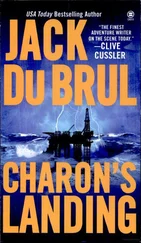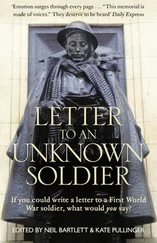Everyone was quiet again. Jack had lost the power of speech. He couldn’t believe that school was starting again the next day. He wanted to prolong this feeling. He wondered if it was possible to stay wavy permanently.
“There’s a party next Friday,” said Ruby. “At David McDonald’s house.”
David McDonald was much older, at least seventeen, maybe even eighteen. He was famous for being a Big Man at school. He’d never speak to a lowly fourteen-year-old like Jack. But everybody talked to Ruby.
“Can you get us in?” asked Frank.
“I can try,” Ruby said.
On Sunday, Harriet spent a chunk of time with Barney at Heathrow Airport. They had to use their press passes to get in; the police were denying access to anyone other than press and airport employees. Heathrow is a vast conglomeration of five terminals, a self-contained world of shopping, catering and security. “Like life itself,” Barney said as they drove from terminal to terminal, “you check in, you eat, you shop, you depart.”
Except now no one was departing, nor arriving; no planes had landed since Thursday. Instead the airport was functioning as a displaced persons camp, the DPs all the non-UK nationals who had nowhere else to go, no money to find other routes home, no money to book into hotels. The airport had become their home. Each terminal had its own forecourt tent city, and the seating areas were packed with people trying to sleep, people who hadn’t slept for days. They were stretched out on top of tables and benches, beneath tables and benches. Harriet saw one family who had turned an airport mobility transport vehicle into their temporary home. In the glossy and sleek new building of Terminal 5, the departure and arrival boards were entirely blank. The taxi ranks were vacant. Everyone had given up shouting. A lone cleaner cleaned. A large man stretched out across several seats moaned loudly. Somewhere in the sleepless crowd, a baby was crying.
Harriet still hadn’t spoken to Michael, but he’d emailed her several times on Saturday night from his hotel in Buffalo. The time difference and Harriet’s work schedule made it hard for her to find the right moment to call, and by the time she got home at night, sorted out Jack, made something to eat, cleared away Jack’s debris, she was so tired she forgot about Michael. At least Jack would be back at school on Monday, not that Harriet worried about him when he was out with his friends. She knew he was a good boy. She told herself she trusted him, when what she really meant was that she hoped he was all right, he had to be all right. She needed to work. She was in the middle of grabbing her opportunity. It was an unfamiliar manoeuvre, and she needed both hands free.
It was hard to see how it would end: the wind needed to change direction, the volcano needed to stop erupting. The enormous inconvenience of it all was awesome to behold—but it was just that, an enormous inconvenience. No lives had been lost. No one had been blown up. No one had been gunned down. A volcano was erupting, and its ash cloud was drifting over Europe, and there was nothing anyone could do about it. The airlines had begun to agitate for changes to the safety regulations. The news was full of stories about desperate people hiring taxis at great expense to drive across Europe, passenger ships to and from New York were booked out, and the government was planning to deploy the navy to repatriate stranded Brits. In his emails Michael sounded calm; he was going to Toronto to wait it out. Going to Toronto seemed like a good idea; he could stay with his old friend Marina. It would be good for him to spend some time in Canada. They hadn’t been to Vancouver, where he’d grown up, for years, but Harriet knew he liked Toronto. Harriet had never met Marina. It wasn’t like Michael to stay with a friend. But these were exceptional circumstances, exceptional times. Harriet wondered when he’d be able to come home. But she couldn’t let herself worry about that, not yet.
Harriet would go see Mallory Flynn. Harriet had known Mallory since they were first starting out. Mallory had gone on to greater things: hers was one of those career paths that followed a proper trajectory, taking off and achieving ever-greater heights. Unlike Harriet’s. She’d go see Mallory and talk about work. Talk about moving on from local radio, back into—back into what? Harriet wasn’t sure. But once things calmed down at work, that’s what she’d do. She’d go have a drink with Mallory. She’d call in a favour. Except Mallory didn’t owe her any favours. Still, they had known each other a long time, and that had to count for something.
Michael phoned Marina from Buffalo on Saturday night.
When she picked up the receiver, she was in the middle of a coughing fit, so he held on while she got it under control. “Hello?” she said, eventually.
“Hello, Marina,” he said, “it’s Michael.”
No reply. He could hear her swallowing heavily, still choking a bit.
“Michael Smith,” he said.
“I know who you are!” She sounded as though she was half-strangled. “Just give me a minute.”
“Okay,” he said. He leaned back against the pillows on the hotel bed. A tune came into his head. He hummed a bit under his breath, then broke out singing: “London calling…” He even did Joe Strummer’s yelp.
“Idiot,” Marina said into the phone. She had her voice back. Unmistakably Marina, low and silky. They saw the Clash together in Vancouver in 1979. The Commodore Ballroom. The crowd was so overexcited and violent that the band stopped playing after four songs. Marina was a proper punk, or at least as proper a punk as possible for an Iranian girl in as non-punk a place as Vancouver. Even then Michael knew the torn T-shirt he was wearing made him look like he was going to grow up to be an actuary, like someone who tore his T-shirt accidentally and hadn’t had time to go home and change.
“I’m coming to town,” he said.
“How? No planes across the Atlantic.”
“The train! We Europeans often travel by train.”
She sighed. Michael could tell he was annoying her already.
“I was stranded in New York. Nowhere to stay. So I thought I’d come to Toronto. To see you.”
“Are you still a banker?”
She knew what he did, but they liked to annoy each other.
“Yes,” he said, “still a fat cat. Though now I actually am kind of fat. Put on a bit of weight in the last couple of years—just to prepare you, so the shock of seeing me doesn’t kill you.”
“You were always too skinny.”
It was one of the great things about having friends who knew you when you were young: when they picture you they see what you looked like when you were eighteen, not what you look like now that you’re pushing fifty. That’s why those Facebook reunions of high school sweethearts are so common: these people take one look at each other and the years of poor diet, no exercise and too much television fall away. But Michael knew Marina would never be so soft. He was sure her hard edges were sharpening with age.
“You need a place to stay.”
“I don’t know,” he said, “haven’t looked into it yet.”
“The hotels in Toronto are as full as the hotels in New York,” she said. “There’s a lot of gouging going on, apparently, rooms tripling in price. You’ll come and stay with me. You never have. It’s about time.”
He gave her his arrival time and Marina said she’d meet him.
“I’ll be the fat guy in a suit,” he said.
She laughed. Marina. Michael’s first girlfriend.
After he left Vancouver, they stayed in touch via ironic postcards, Michael sending royal family memorabilia for the most part, Marina specializing in Canadiana—the Mountie on his horse, the stuffed black bear on his hind legs outside the tourist shop. They knew before they started dating that their relationship was time-limited; Michael had already been accepted at the London School of Economics. As a result, their relationship had an unnatural natural ease to it, a live-for-today clarity. The advent of email had revived their correspondence just at the point it was beginning to fade away, and they’d kept up sporadic contact that way. Michael was a Facebook refusenik; no amount of nudging and poking and requesting would make him change his mind. But he used to travel to Toronto for business fairly regularly before the crash, and he would see Marina whenever he was in town; they’d have dinner together somewhere smart and new. Marina always knew about the next big thing before it became the next big thing, by which time she’d have moved on to the one after that. She’d worked as an interior stylist for a home decor magazine for many years, before finding an investor and opening her own store. Furniture, lamps, a select range of luxurious clothes made for lounging on the furniture lit by the lamps, and an even more select range of jewellery with a tasteful Persian influence. No carpets. Years before, she had extricated herself—painfully—from her father’s Vancouver business to go to art school in Toronto, and she wasn’t going anywhere near Persian carpets. You couldn’t buy anything in her shop for less than a couple of months’ worth of mortgage payments. Yorkville, of course—the funky bit, where the streets are narrow and the old houses have been transformed into shops and galleries.
Читать дальше












